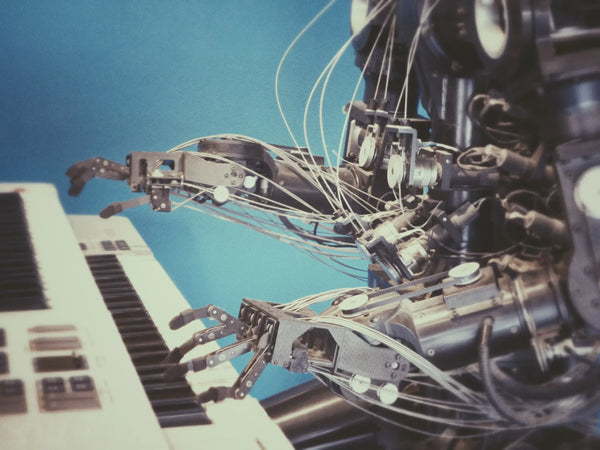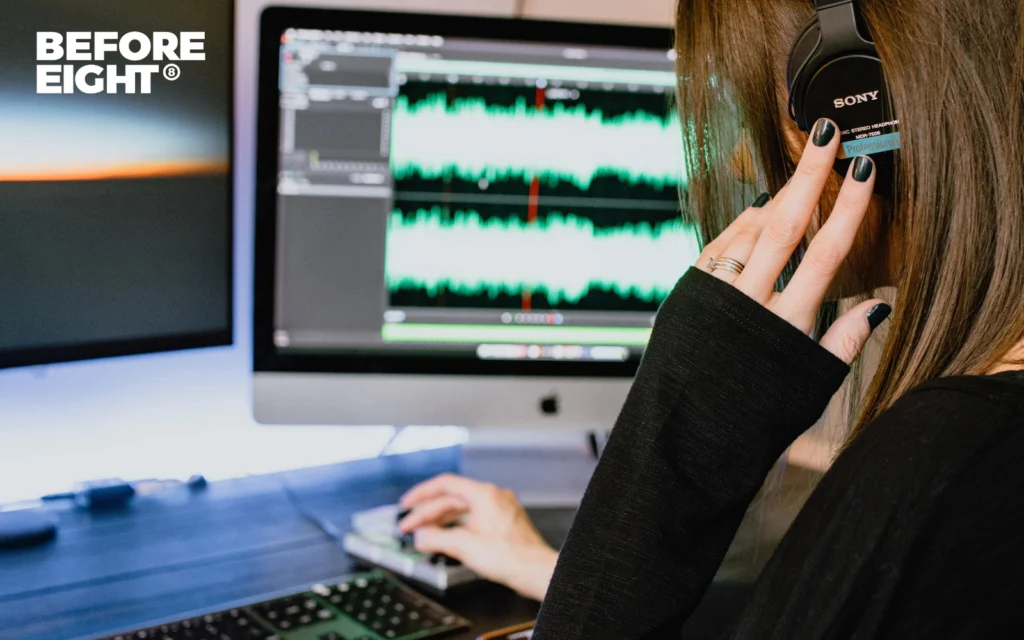
Artificial intelligence in music promotion
The development of AI for music production and marketing
The development of artificial intelligence in the music industry
Advances in artificial intelligence have profoundly changed the music industry in recent years. While early AI-powered music generators such as AIVA (Artificial Intelligence Virtual Artist) and Amper Music delivered impressive results as early as the 2010s, the technology has evolved enormously since then. Today, tools such as OpenAI's Jukebox, Boomy, Endlesss, Suno, and Stable Audio enable the automatic generation of music tracks in various genres, including vocals, melody, and harmony. AI-powered mastering services such as LANDR and eMastered, as well as remix and stem extraction programs such as Spleeter, are also becoming increasingly popular.
Major streaming platforms such as Spotify, Apple Music and YouTube use AI not only for personalized recommendations, but also for music analysis, rights management, and music production. Labels and producers use AI to optimize song structures in order to achieve maximum streaming numbers. At the same time, there are also experiments with virtual artists, such as FN Meka, an AI-generated rapper who was briefly signed by Capitol Records.
Legal framework and initial AI regulations
With the growing importance of AI, the question arises: Who owns the rights to AI-generated music? So far, there is no uniform legal framework internationally. In the US, the US Copyright Office has clarified that music without human creative involvement cannot be protected by copyright. Europe, on the other hand, is still discussing whether a new form of “AI copyright” should be created.
The EU AI Regulation (AI Act), which was finalized in 2024, aims to ensure safe and transparent AI development and includes safeguards against misuse. Germany and other European countries already have intellectual property laws that could also apply to AI-generated content. At the same time, China issued a regulation for AI-generated content in 2023 that requires platforms to disclose AI-assisted music production.
Another legal aspect is the so-called “fair use” principle, which in the US allows artists to use existing works for creative purposes. But how does this apply to AI that “learns” from millions of songs? This is an open dispute between labels, artists, and tech companies.

The main concerns and unanswered questions about AI
-
Plagiarism and copyright issues
– How can we ensure that AI-generated music does not unintentionally copy existing songs?
– Should AI models have access to copyrighted music in order to “train” themselves? -
Loss of jobs and creative processes
– Will composers, producers, and musicians be replaced or merely supplemented by AI?
– What role will human creativity still play when algorithms optimize musical taste and song structure? -
authenticity and acceptance
– Will fans accept AI music as genuine art?
– Should there be a labeling requirement for AI-generated songs? -
Abuse and manipulation
– Could AI-generated tracks flood streaming platforms with mass-produced music?
– How can we prevent labels or platforms from using algorithms to artificially manipulate listener numbers and reach?
10 advantages of AI in the music industry
- Efficiency in music production – AI-powered tools can create melodies, beats, and arrangements in seconds and support producers.
- Automated mastering services – Platforms such as LANDR enable cost-effective and fast mastering without a human sound engineer.
- Personalized playlists & recommendations – Streaming services use AI to suggest music tailored to individual listeners.
- Democratization of music production – Even beginners without professional studio equipment can create high-quality tracks.
- Better music rights analysis – AI can monitor copyrights and identify infringements more quickly.
- Optimization of marketing strategies – AI helps labels and artists reach target audiences more precisely (e.g., social media analytics).
- Music restoration & remastering – Old recordings can be improved with AI restoration (e.g., noise reduction, pitch correction).
- Text generation for lyrics – AI can serve as a source of inspiration for songwriters or create complete lyrics.
- Virtual artists & avatars – AI-generated musicians (such as FN Meka) open up new creative and commercial opportunities.
- Better analysis of trends – Algorithms recognize early on which music styles or artists could become popular.
10 disadvantages of AI in the music industry
- Loss of human creativity – AI can only be based on existing data and cannot create genuine emotions or innovations.
- Risk of copyright infringement – AI-generated songs could unintentionally imitate protected works.
- Monotony & uniformity – Automatically generated music could lead to a homogeneous music landscape, as algorithms optimize for trends.
- Loss of value for human musicians – If AI takes over songwriting and mastering, jobs for producers and artists could be lost.
- Lack of emotional depth – AI can write lyrics, but without personal experience or deeper emotional connection.
- Complex legal issues – Who owns the rights to a song created by AI? Artists, labels, and lawmakers face new challenges.
- Flooding with generic music – The mass of AI-generated tracks could overload streaming platforms and make it difficult for real artists to break through.
- Manipulation of the music market – AI-optimized tracks could be produced specifically for algorithmic favoring in playlists, rather than for genuine artistic vision.
- Reduction in human collaboration – AI could replace songwriting teams, which could jeopardize creative synergies between artists.
- Loss of authenticity – Fans may identify less with music if they know it was created by machines instead of humans.
Overall, the integration of artificial intelligence into music promotion is a complex matter. It is important to carefully weigh the opportunities and challenges and ensure that the technology is used in a way that respects creative integrity and adheres to ethical standards. The music industry faces an exciting future in which AI will undoubtedly play an important role.
For more industry news, stay tuned and check out our other blogs!
Your BEFORE EIGHT team.